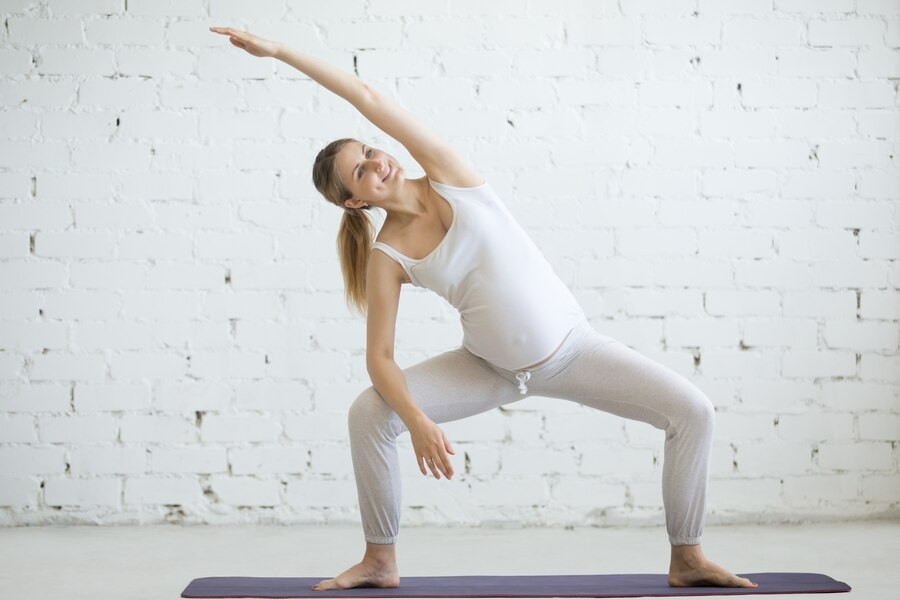Berolahraga sangat penting untuk menjaga kebugaran dan kesehatan mental, termasuk selama kehamilan. Aktivitas fisik yang tepat dapat memberikan berbagai manfaat, seperti meningkatkan energi, membantu menjaga berat badan, dan mempersiapkan tubuh menghadapi persalinan.
Namun, ibu hamil perlu memperhatikan beberapa hal agar olahraga tetap aman dan bermanfaat. Dengan pemilihan jenis latihan yang sesuai dan memperhatikan kondisi tubuh, ibu hamil dapat menikmati manfaat olahraga tanpa risiko.
Hal-Hal yang Perlu Diperhatikan saat Berolahraga Selama Kehamilan
Sebelum memulai atau melanjutkan rutinitas olahraga selama kehamilan, sangat penting untuk berkonsultasi dengan dokter. Setiap kehamilan itu unik, dan kondisi setiap ibu hamil bisa berbeda-beda.
Kondisi medis tertentu, seperti preeklamsia, kehamilan kembar, atau riwayat keguguran, juga dapat membuat olahraga menjadi lebih berisiko. Dengan berkonsultasi, ibu hamil dapat memahami batasan dan jenis olahraga yang paling sesuai dengan kondisi tubuh, sehingga dapat berolahraga dengan aman dan efektif.
Baca Juga: Tubuh Nyeri saat Hamil, Bolehkah Dipijat?
Setelah berkonsultasi dengan dokter, ada banyak aspek yang perlu diperhatikan selama menjalani rutinitas olahraga selama kehamilan, di antaranya:
Memilih olahraga yang aman
Tidak semua jenis olahraga cocok untuk ibu hamil. Sebaiknya, hindari olahraga yang melibatkan kontak fisik yang keras, seperti bersepeda gunung, sepak bola, atau bola basket.
Jika Anda ingin tetap berolahraga, pilihlah aktivitas dengan dampak rendah, seperti berjalan kaki, yoga kehamilan, berenang, atau latihan kardiovaskular ringan. Latihan-latihan ini lebih aman dan dapat membantu meningkatkan kebugaran tanpa meningkatkan risiko cedera.
Memperhatikan intensitas latihan
Selama kehamilan, tubuh mengalami banyak perubahan termasuk peningkatan detak jantung dan perubahan tekanan darah. Oleh karena itu, sangat penting untuk mengatur intensitas latihan agar tidak berlebihan.
Hindari latihan yang membuat tubuh terlalu lelah atau menyebabkan kesulitan bernapas. Ibu hamil sebaiknya memilih aktivitas yang memungkinkan mereka untuk tetap dapat berbicara dan bernapas dengan normal selama berolahraga. Ini adalah tanda bahwa olahraga tersebut masih aman dan sesuai dengan kondisi tubuh.
Baca Juga: Bolehkah Wanita Hamil Olahraga Pound Fit?
Menjaga hidrasi dan asupan nutrisi
Kebutuhan cairan dan nutrisi meningkat selama kehamilan, terutama saat berolahraga. Untuk itu, penting menjaga tubuh tetap terhidrasi dengan minum cukup air sebelum, selama, dan setelah olahraga.
Selain itu, pastikan asupan makanan Anda cukup dan bergizi seimbang, terutama karbohidrat dan protein yang mendukung energi serta pemulihan tubuh. Sebaiknya, hindari berolahraga saat perut kosong, karena hal ini dapat menyebabkan penurunan gula darah yang berbahaya bagi ibu dan janin.
Memperhatikan posisi tubuh
Selama trimester kedua dan ketiga, hindari olahraga yang melibatkan posisi berbaring atau telentang dalam waktu lama. Posisi ini dapat menekan pembuluh darah besar, mengurangi aliran darah ke jantung dan janin, serta berisiko menyebabkan pusing atau penurunan tekanan darah.
Waspadai tanda bahaya
Meskipun olahraga aman dilakukan, tetap waspada terhadap tanda-tanda bahaya yang muncul seperti:
- Perdarahan
- Nyeri perut
- Kontraksi terus-menerus
- Pusing
- Sesak napas
- Pembengkakan tiba-tiba
Jika mengalami gejala-gejala tersebut, segera hentikan olahraga dan hubungi dokter untuk memastikan bahwa kondisi ibu dan janin tetap aman. Anda juga bisa memanfaatkan layanan konsultasi kesehatan Ai Care dengan mengunduhnya melalui App Store atau Play Store.
Mau tahu informasi seputar kehamilan, menyusui, kesehatan wanita dan anak-anak? Cek di sini, ya!
- dr Nadia Opmalina
Better Health. Pregnancy and exercise. Available from: https://www.betterhealth.vic.gov.au/health/healthyliving/pregnancy-and-exercise
American College of Obstetricians and Gynecologists (2024). Exercise During Pregnancy. Available from: https://www.acog.org/womens-health/faqs/exercise-during-pregnancy
Danielle B. Cooper and Lily Yang (2023). Pregnancy And Exercise. Available from: https://www.ncbi.nlm.nih.gov/books/NBK430821/
Carly Vandergriendt (2023). How Does Exercise Affect Blood Pressure?. Available from: https://www.healthline.com/health/blood-pressure-after-exercise
Anthony L. Komaroff, MD (2023). How does exercise affect blood pressure?. Available from: https://www.health.harvard.edu/diseases-and-conditions/how-does-exercise-affect-blood-pressure
Mayo Clinic (2022). High blood pressure and pregnancy: Know the facts. Available from: https://www.mayoclinic.org/healthy-lifestyle/pregnancy-week-by-week/in-depth/pregnancy/art-20046098
Catherine Clark (2020). Nutritional Needs During Pregnancy. Available from: https://www.healthline.com/health/pregnancy/nutrition
Yongye Song, et all (2023). A Study of the Fluid Intake, Hydration Status, and Health Effects among Pregnant Women in Their Second Trimester in China: A Cross-Sectional Study. Available from: https://www.ncbi.nlm.nih.gov/pmc/articles/PMC10096982/












